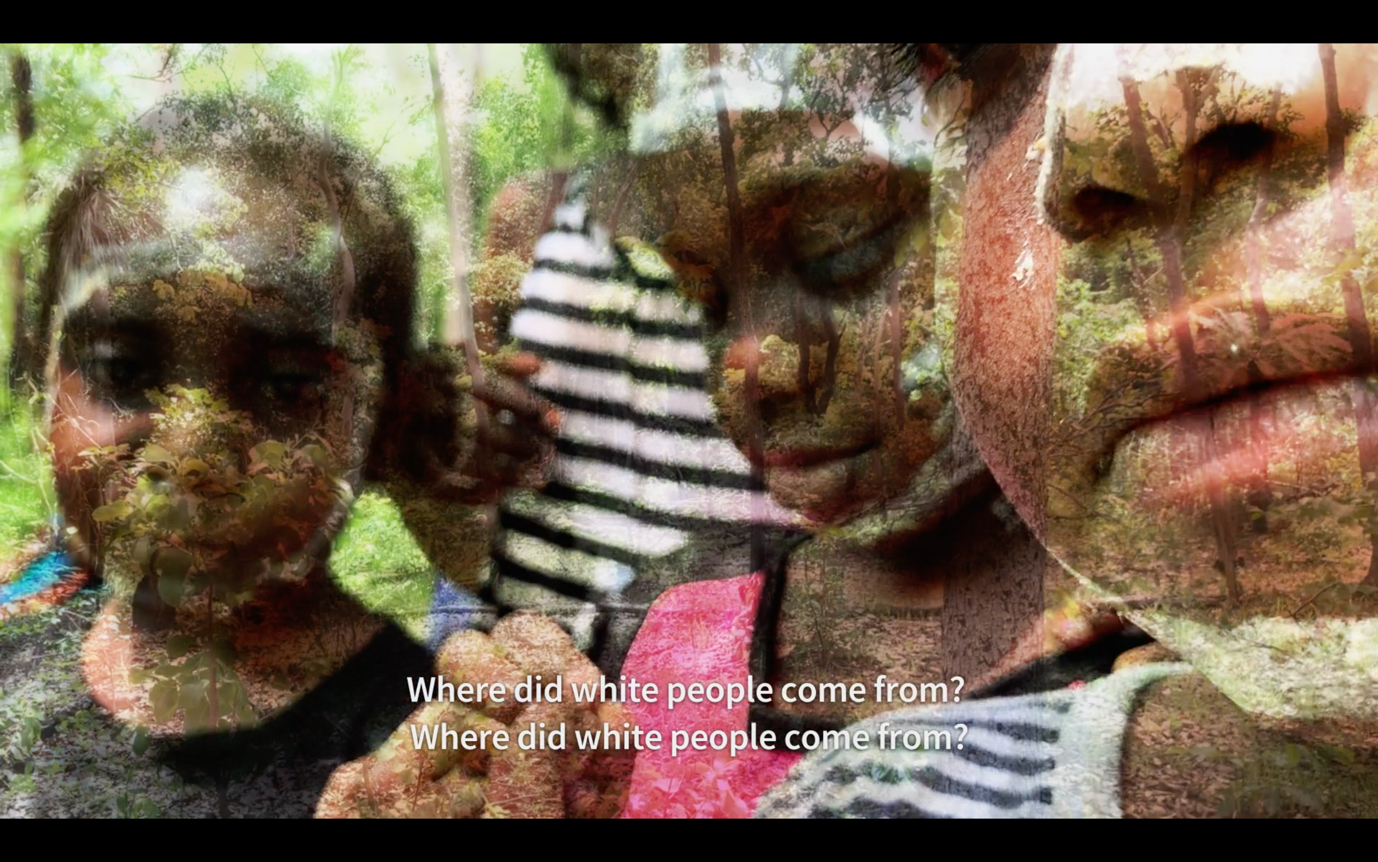The Family and the Zombie
Description:
The practice of the Karrabing Film & Art Collective, one of the participants in Museum of Civilizations’ Research Fellowship program, revolves around the lives of an indigenous community in the Northern Territories of Australia use of film as a means of self-representation and therefore affirmation of their political agenda on social, environmental and economic issues. Using low-cost technologies adopting an ironic approach (a need to entertain the younger members of the collective during filming) a style that Karrabing call “improvisational realism”, their films deal with mining by the Australian central government, or the police oppression of community members. The works mingle everyday anecdotes with the coexistence between human beings, and the toxicity produced by western modernity. Their latest film The Family and the Zombie, tells the story of a group of indigenous ancestors of the future, who live peacefully in their ancestral environment while their children are persecuted by a white zombie (played by the only non-indigenous member of Karrabing, the anthropologist, critical theorist and artist Elizabeth A. Povinelli). While observed by the zombie – a foreshadowing of the toxic future generated by unbridled Western consumption – the children ask their parents where all the plastic, the batteries and the rusty objects scattered in the environment come from. Karrabing’s research brings and plants in the Museum a pragmatic experience of reality, where ideas and concepts are also facts. The vision of time is non-linear and non-circular, but conceived as “sediment” instead, where the present rests both on the ground where the ancestors lie and on the waste – both material and ideological – representing the intertwining of legacies we have to reckon with in our present and future. ML

